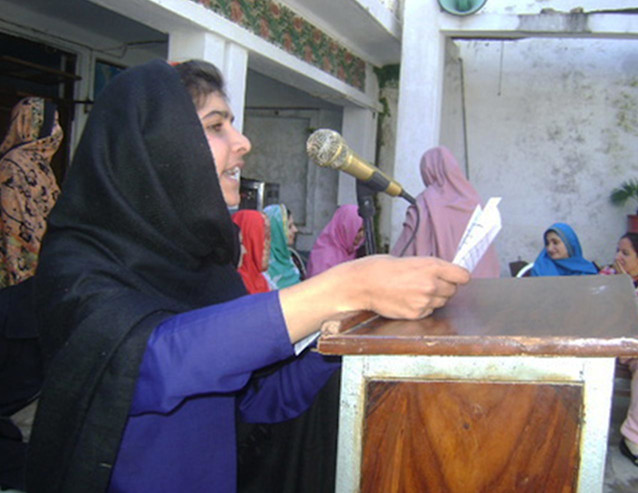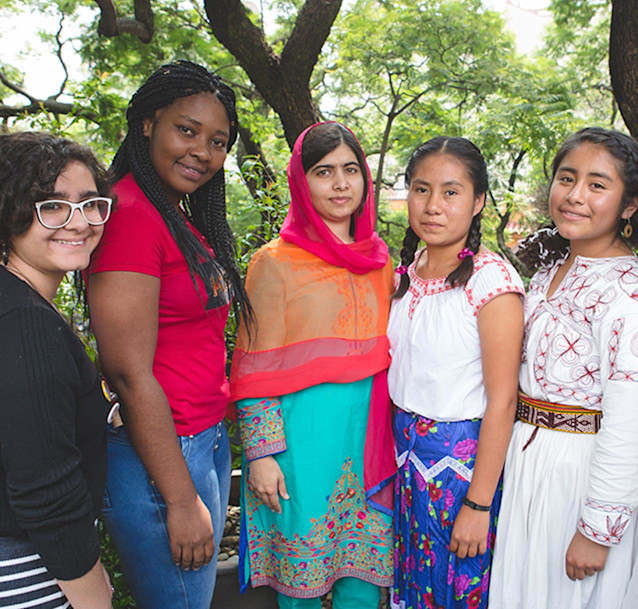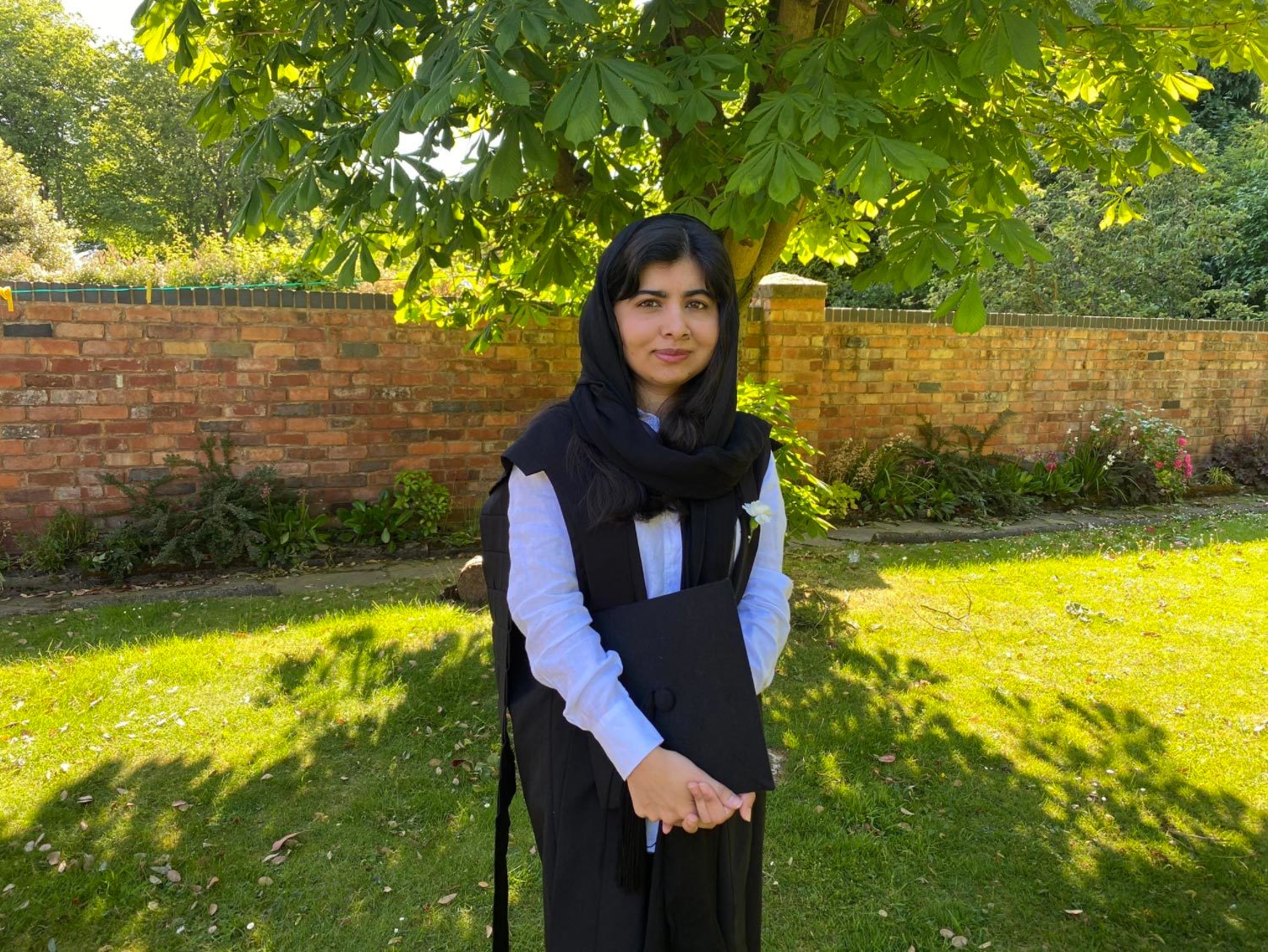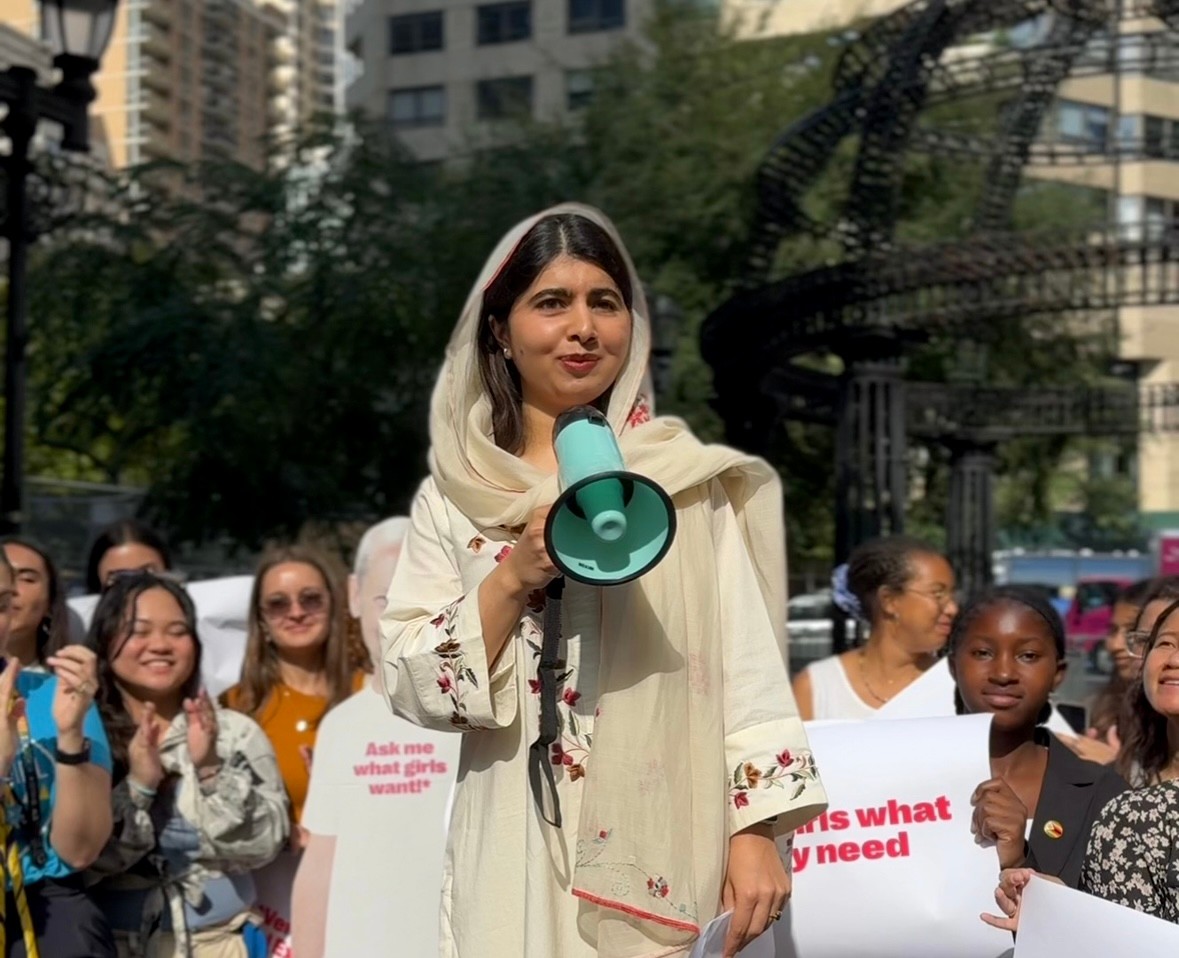I tell my story not because it is unique, but because it is the story of many girls.
1997
She was born in Mingora, Pakistan on July 12, 1997.
Welcoming a baby girl was not always cause for celebration in Pakistan — but her father, Ziauddin Yousafzai, was determined to give her every opportunity a boy would have.

2008
Her father was a teacher and ran a girls’ school in their village.
She loved school. But everything changed when the Taliban took control of their town in Swat Valley. The extremists banned many things — like owning a television and playing music — and enforced harsh punishments for those who defied their orders. And they said girls could no longer go to school.
In January 2009, when she was just 11 years old, she said goodbye to her classmates, not knowing when — if ever — she would see them again.
She became an activist, speaking out publicly on behalf of girls and their right to learn and blogging about her experiences for BBC Urdu. This made her a target.
In 2011, Archbishop Desmond Tutu nominated her for the International Children’s Peace Prize. That same year, she met with the Prime Minister of Pakistan who awarded her the country’s National Peace Award for Youth in recognition of her bravery.

2012
In October 2012, on her way home from school, a masked Taliban gunman boarded her school bus and asked, “Who is Malala?”
He shot her on the left side of her head.
She woke up 10 days later in a hospital in Birmingham, England. The doctors and nurses told her about the attack and that people around the world were praying for her recovery.
After months of surgeries and rehabilitation, she joined her family in their new home in the U.K.
It was then she knew she had a choice: she could live a quiet life or she could make the most of this new life she had been given. She was determined to continue her fight until every girl could go to school.

2013
On her 16th birthday, July 12, 2013, she spoke at the United Nations, calling for all children to have access to education
The U.N. recognised July 12 as Malala Day, in honour of her courageous advocacy and to highlight the global struggle for education. With her father, her ally and inspiration, she established Malala Fund, an organisation dedicated to giving every girl the opportunity to learn and choose her own future.
She received the Nobel Peace Prize in December 2014, becoming the youngest-ever Nobel laureate.
This was the start of a new journey. With Malala Fund, she began working with a global network of leaders and activists fighting for girls’ right to education.
2017
She began studying Philosophy, Politics and Economics at the University of Oxford.
And every day she continued to fight to ensure all girls receive 12 years of education.
She traveled to many countries, from Brazil to Nigeria to Iraq, to meet girls fighting against poverty, wars, child marriage and gender discrimination to go to school. Through Malala Fund, she worked hard to share their stories with the world.

2020
She graduated from Oxford University!
She always treasured her time at Lady Margaret Hall — the lectures, club meetings, balls and late nights (some spent finishing papers, some just chatting with friends in the dorm). Although a global pandemic meant she spent her final months as a university student in her parents' house, she was grateful to complete her education. After taking time to relax, she was more dedicated than ever to her fight for girls.
In 2021, she married Asser Malik, starting a new chapter in their life together.

2024
She celebrated Malala Fund turning 10.
She marked the milestone with a speech at the U.N. House in Nigeria, reflecting on the organisation’s decade of impact for millions of girls around the world and the work still left to do.
She started speaking out even louder for the millions of Afghan girls who couldn’t achieve their dreams, banned by the Taliban from going to secondary school and denied their basic rights. In Johannesburg, New York City and Islamabad, she shared their stories and their call to end gender apartheid with global leaders.

2025
Malala continues her advocacy as executive chair and co-founder of Malala Fund, taking the movement for girls’ education to governments and leaders around the world.
She is passionate about storytelling and continues to uplift girls’ voices and demands. Outside of Malala Fund, she is involved in many different projects, from film production to writing.
With 122 million girls out of school today, there is more work to be done. She hopes you will join her fight for education and equality. Together, we can create a world where all girls can learn and choose their own futures.

Support Malala’s fight for girls’ education
With more than 122 million girls out of school today, she needs your help to reach the most vulnerable girls denied an education.
Your gift today is an investment in Malala Fund's work to help girls around the world go to school.